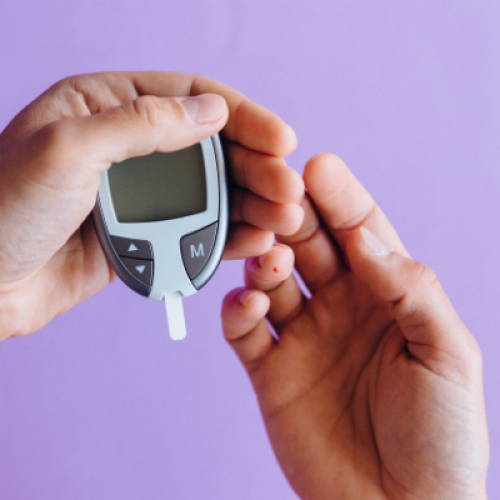Diabetes Care

Expert Diabetes Care for Lasting Health in Aundh
Diabetology is the clinical science of diabetes mellitus (DM), including its diagnosis, treatment, and follow-up. It is considered a sub-specialty in medicine. In Aundh, the term “diabetologist” is used in a variety of ways. Diabetology is not recognized as a medical specialty, and there are no official coaching programs that lead to board certification. Dr. Leena Tudayekar, a well-known Endocrinologist and Diabetologist in Aundh who provides the best Diabetes treatment, is referred to as a Diabetologist in other contexts. Apart from regulating medication dose and temporal order, he follows the analysis efforts area unit focused on the major polygenic disease care. Dr. Leena Tudayekar is a well-known Diabetologist who is concerned about the long-term effects of polygenic diseases, such as retinopathy, renal disease, and peripheral pathology.
Who is Diabetologist?
- A Diabetologist is a physician that specializes in diabetes therapy.
- Diabetologists treat what medical conditions?
- Diabetes Type I
- Diabetes Type II Diabetes
- Complications Diabetes
Treatment Diabetes is frequently treated by a multidisciplinary team.To educate, treat, and monitor a patient, the Diabetologist collaborates with Diabetic Educators, Nurses, Podiatrists, Ophthalmologists, and Renal specialists. Medications, either orally or by insulin injections, are commonly used to treat the condition.
Symptoms of Diabetes
- Urinate (pee) frequently,a especially at night.
- Are extremely thirsty.
- Lose weight without putting up any effort.
- Are quite hungry.
- Your vision is hazy.
- Hands or feet are numb or tingling.
- I’m exhausted.
- My skin is really dry
Treatment for diabetes Patient:
Diabetes treatments vary depending on the type. A diabetic meal plan, regular physical activity, and medications are all common therapies. Weight loss surgery for either type of diabetes, as well as an artificial pancreas or pancreatic islet transplantation, are less usual treatments for certain people with type 1 diabetes.
Factors that increase the risk of diabetes
Diabetes is caused by a combination of variables.
Kind 1 diabetes
Is a kind of diabetes in which the body’s insulin levels are high? You’re more likely to get type 1 diabetes if you’re a kid or teenager, if you have a parent or sibling who has the disease, or if you have certain genes linked to the disease.
Diabetes type 2
Are overweight, 45 or older, have diabetes in a parent or sibling, aren’t physically active, have had gestational diabetes, or have prediabetes
Diabetes during pregnancy
If you do any of the following, you’re more likely to develop gestational diabetes:
Are overweight and above the age of 25 and have had gestational diabetes in the previous

